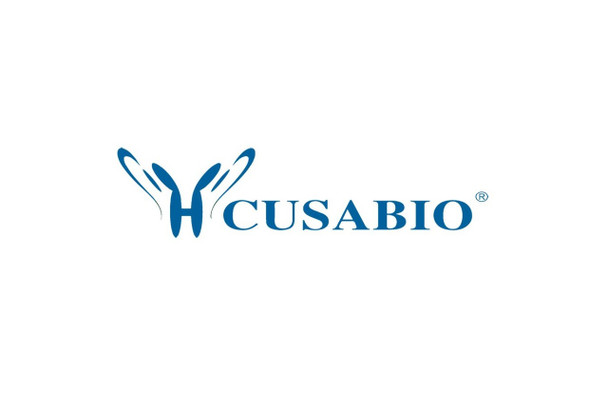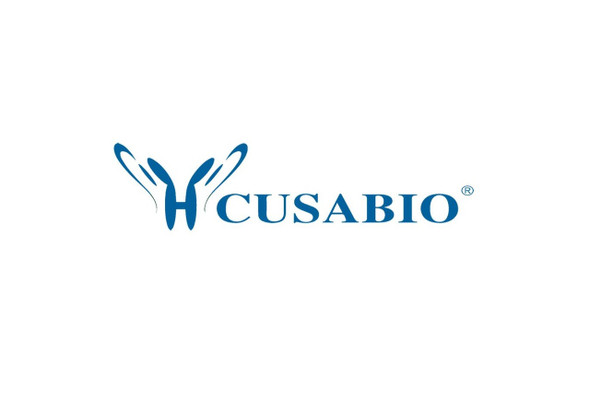Cusabio Rotavirus A Recombinants
Recombinant Rotavirus A Outer capsid glycoprotein VP7 | CSB-EP420195RIU
- SKU:
- CSB-EP420195RIU
- Availability:
- 3 - 7 Working Days
Description
Recombinant Rotavirus A Outer capsid glycoprotein VP7 | CSB-EP420195RIU | Cusabio
Alternative Name(s): ; Outer capsid glycoprotein VP7; Fragment
Gene Names: N/A
Research Areas: Others
Organism: Rotavirus A (strain RVA/Cow/Canada/C486/1977/G6P6[1]) (RV-A)
AA Sequence: QNYGVNLPITGSMDTAYANSTQSEPFLTSTLCLYYPVEASNEIADTEWKDTLSQLFLTKGWPTGSVYLKEYADIAAFSVEPQLYCDYNLVLMKYDSTQELDMSELADLILNEWLCNPMDITLYYYQQTDEANKWISMGSSCTVKVCPLNTQTLGIGCLITNPDTFETVATTEKLVITDVVDGVSHKLNVTTATCTIRNCKKLGPKENVAVIQVGGANILDITADPTTTPQTERMMAIIWKKWWQVVYPVVDYVNQIIQTMSKRSRSLNSSAFYYRV
Source: E.coli
Tag Info: N-terminal 10xHis-tagged and C-terminal Myc-tagged
Expression Region: 34-309aa
Sequence Info: Full Length of Mature Protein
MW: 36 kDa
Purity: Greater than 85% as determined by SDS-PAGE.
Relevance: Outer capsid protein involved in attachment and possibly entry into the host epithelial cell. It is subsequently lost, together with VP4, following virus entry into the host cell. The outer layer contains 780 copies of VP7, grouped as 260 trimers. Rotavirus attachment and entry into the host cell probably involves multiple sequential contacts between the outer capsid proteins VP4 and VP7, and the cell receptors. In integrin-dependent strains, VP7 seems to essentially target the integrin heterodimers ITGAX/ITGB2 and ITGA5/ITGB3 at a postbinding stage, once the initial attachment by VP4 has been achieved
Reference: "Nucleotide sequence of the structural glycoprotein VP7 gene of C486 G6P[5] Bovine rotavirus." Gonzalez D.D., Mozgovoj M.V., Bellido D., Parreno V.G., Wigdorovitz A., Dus Santos M.J.
Storage: The shelf life is related to many factors, storage state, buffer ingredients, storage temperature and the stability of the protein itself. Generally, the shelf life of liquid form is 6 months at -20?/-80?. The shelf life of lyophilized form is 12 months at -20?/-80?.
Notes: Repeated freezing and thawing is not recommended. Store working aliquots at 4? for up to one week.
Function: Outer capsid protein involved in attachment and possibly entry into the host epithelial cell. It is subsequently lost, together with VP4, following virus entry into the host cell. The outer layer contains 780 copies of VP7, grouped as 260 trimers. Rotavirus attachment and entry into the host cell probably involves multiple sequential contacts between the outer capsid proteins VP4 and VP7, and the cell receptors. In integrin-dependent strains, VP7 seems to essentially target the integrin heterodimers ITGAX/ITGB2 and ITGA5/ITGB3 at a postbinding stage, once the initial attachment by VP4 has been achieved (By similarity).
Involvement in disease:
Subcellular Location: Virion, Host endoplasmic reticulum lumen
Protein Families: Rotavirus VP7 family
Tissue Specificity:
Paythway:
Form: Liquid or Lyophilized powder
Buffer: If the delivery form is liquid, the default storage buffer is Tris/PBS-based buffer, 5%-50% glycerol. If the delivery form is lyophilized powder, the buffer before lyophilization is Tris/PBS-based buffer, 6% Trehalose, pH 8.0.
Reconstitution: We recommend that this vial be briefly centrifuged prior to opening to bring the contents to the bottom. Please reconstitute protein in deionized sterile water to a concentration of 0.1-1.0 mg/mL.We recommend to add 5-50% of glycerol (final concentration) and aliquot for long-term storage at -20?/-80?. Our default final concentration of glycerol is 50%. Customers could use it as reference.
Uniprot ID: A8D8S8
HGNC Database Link: N/A
UniGene Database Link: N/A
KEGG Database Link: N/A
STRING Database Link: N/A
OMIM Database Link: N/A









